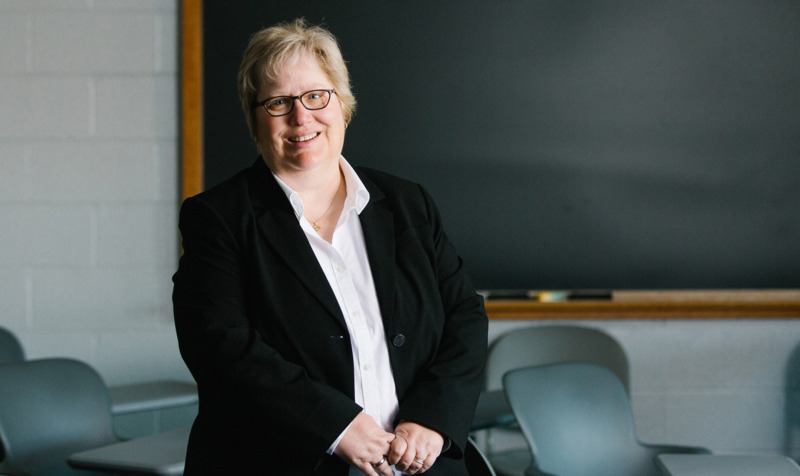Education
- Ph.D. 2008 – Lynch School of Education, Boston College, Curriculum and Instruction
- M.S. 1992 – University of Dayton, Teacher Education
- B.A. 1986 – Case Western Reserve University, Biology, History Minor
Areas of Expertise
- Science Education
- Learning Sciences
- Emergent Technologies
- Games and Learning
- Computational Thinking
- Design Based Research
- Collaborative Learning Theory
- Science Teacher Education
Background
Janice Anderson specializes in Science Education, the Learning Sciences, and Technology integration. After graduating with a Bachelor’s degree in Biology from Case Western Reserve University, she began her career working in a molecular biology research lab focusing on reproductive endocrinology and biochemistry. Through her lab work, she became interested in working with high school students on their own science experiences within the lab. This led to a change of career directions and the pursuit of a degree in science education and a career in teaching. Prior to coming to Chapel Hill, she taught Biology (Honors and AP), microbiology, Environmental Science and Anatomy and Physiology for 12 years at the high school level. She received her Masters Degree in Science Education from the University of Dayton and her Ph.D. in Curriculum and Instruction with a focus on Science Education and Technology from Boston College. Janice has spent 20+ years examining the impact of technology integration on student learning within the field of science, beginning in her early high school classroom and continuing on to her current research and practice at the School of Education.
Research
Anderson’s research utilizes a Design-Based Research (DBR) methodological approach to conduct conceptually generative research on engaging Pre-Service and In-Service teachers and students as 21st Century educators and learners who leverage new and emerging technologies in the teaching and learning of science. Technology, in its various forms, is used as a tool that helps to establish and strengthen these rich science learning environments for both pedagogical practice and learning. These emergent technologies, which include educational games, simulations, apps and other technology platforms, serve as a conduit for her research to critically engage teachers and students in active, authentic learning of science content and science and engineering practices.
Anderson’s work has included several funded projects:
NSF DRK12 Bio-Sphere: Fostering deep learning of complex biology for building our next generations scientists. This project worked to bring socio-scientific issues into middle school classrooms though curricular materials, simulations and a concept mapping software that engaged students in authentic science and engineering practices around issues of sustainability.
OSEP – DOE: The Center for the Advancement of Early STEM Education (CAESE). The goal of the Center is to increase the body of knowledge of current evidence-based practices (EBPs) for early STEM learning including computational thinking.
Seed Grant – School of Education: Virtual Interactive Environment for Learning Science: Prototype Development and Testing: This proof of concept project is part of a joint effort with Eshelman School of Pharmacy faculty to adapt a virtual, game-based interactive platform (i.e., the “Virtual Patient”) designed originally to train pharmacists, to be used by high school science teachers to provide immersive experiences that promote students’ conceptual, procedural, and conditional knowledge relevant to life sciences, as well as their interest, excitement, and efficacy for life science careers.
